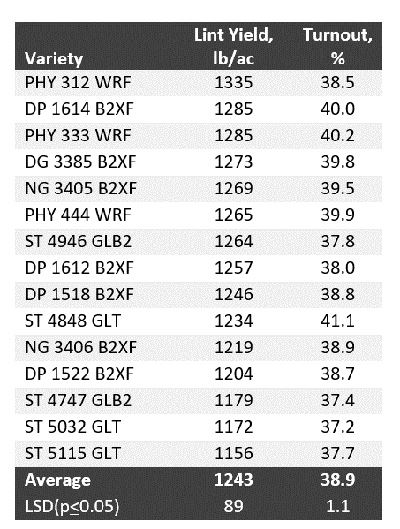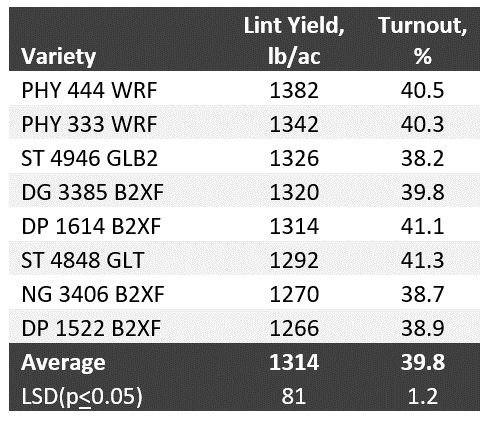Preliminary UT Cotton Variety Strip Till Data Now Available

DR. TYSON RAPER AND RYAN BLAIR
JACKSON, TENN.
The University of Tennessee Cotton Agronomy Program provides an unbiased evaluation of experimental and commercial varieties available for production in Tennessee each year. The 2016 program consisted of three major types of trials: the Official Variety Trials (OVTs), large replicated on-farm variety trials, and the County Standard Trials (CSTs).
The UT Cotton MicroGin is currently ginning the last of six OVTs and results will be released as soon as ginning is complete and samples have been analyzed for fiber quality. However, ginning of the large replicated trial samples and the CST samples was completed earlier this week. Fiber quality samples have not yet been processed but I wanted to provide some preliminary information on turnout and lint yield now. For those who are not familiar with the program, the large replicated on-farm trials and CSTs are large plot variety trials located throughout West Tennessee and are only composed of commercial cultivars.
The summarized preliminary data represents 13 CST locations and 4 large replicated trials established during the 2016 season. Slight differences in variety performance from the two different types of tests can largely be explained by differences in planting dates. While the CST planting dates ranged from late April to late May, most of the replicated trials were planted in a narrow window from late April to early May. Therefore, later maturing varieties performed slightly better in the large replicated trials.
Location-specific results will be reported in the 2017 Cotton Variety Guide (W285) and the 2016 Cotton Variety Trial Results (PB1742). Data will include by-location results and gin turnout, lint yield, and fiber quality averaged by program. ∆
DR. TYSON RAPER: Cotton & Small Grains Specialist, University of Tennessee
RYAN BLAIR: Extension Area Specialist II, University of Tennessee

Table 1: Preliminary averages of lint yield and turnout from the 2016 University of Tennessee Cotton County
Standard Trial program. Data represents the average of 13 locations scattered across West Tennessee.

Table 2: Preliminary averages of lint yield and turnout from the 2016 University of Tennessee Large Replicated Trial program.
Data represents the average of 4 locations in Crockett, Fayette, Gibson and Madison Counties.